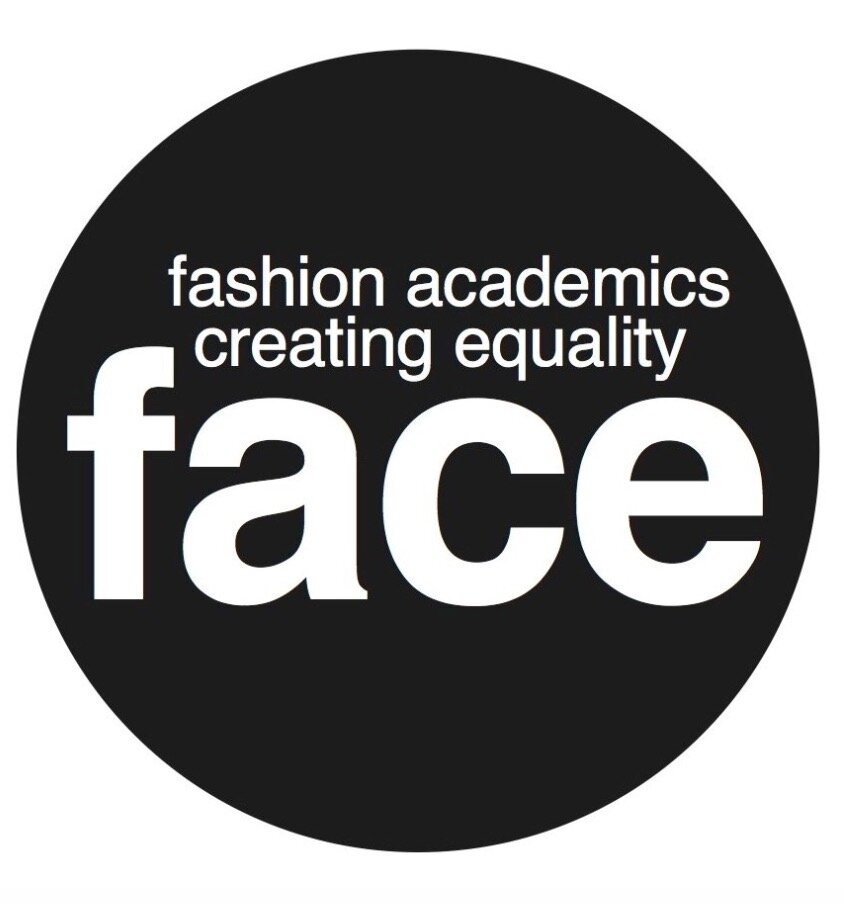Flip it…
Best Practice: Recruitment
FACE Recruitment conversations take place all the time, here is a small selection of collected best practice examples. What is your organisation doing? Let us know by using the connect page
First - Food for thought.
Post grads only signify that white, middle-class people have been funded to look at creativity from a white perspective through the lens of white privilege.
With institutions pleading scarcity of Black and Brown job applicants, our academics of colour know differently, starting with the all-white interview panel when they apply for the job and moving to the obvious race-barriers of qualifications which require income and class privilege to achieve, here’s a thought…
Why not FLIP your recruitment wording?
“We are looking for an accomplished educator with experience of global industry narratives and diverse fashion culture. We require applicants to have lived experience of Black fashion and Black culture in addition to standard European contexts and experiences.”
Wondering how your job wording could invite Black and Brown academics into the building? See the following recruitment statement from LJMU. This process and wording was mentored by FACE co-founder Andrew Ibi.
“The School of Art and Design is currently under-represented with regards to staff from a Black, Asian, and other Minority Ethnic background and is actively promoting diversity in its workforce. We welcome applications from all eligible applicants. However, we would like to encourage applicants from the Black, Asian, and other Minority Ethnic communities who are currently under-represented within this area of work. Appointment will be based on merit.”
“Employ more Black and Brown People. What’s the issue? All you have do is be explicit.”
FACE co-founder - Andrew Ibi
See how our colleagues at UAL approached this last year and share.
UAL’s goal of 30% employment of Black and Brown academics by 2025 requires targeted action. Consultations are offered to Black and Brown academics prior to application. See this statement included in all of their job specs.
UAL is committed to addressing the under-representation of staff from Black and Minority Ethnic communities, using our student profile as a reference point. During the Academic Futures recruitment campaign of 2021, we will therefore be offering application consultations to prospective candidates from this under-represented group.
If you identify as a Black or Minority Ethnic candidate and would like to book an application consultation, please fill in this short form Academic Futures Consultation Expression of Interest.
NB The interviewing is now closed but the application consultation guidance is still available from the link above in PDF form.
Recruitment discussion with FACE.
Question
“Hi there FACE. At our institute we are thinking of making new appointments at a senior academic level. We want to ensure that any recruitment process engages with all of our colleagues, and this is particularly the case with Black and Brown academics and practitioners.
I note that it has been historically possible to post academic vacancies on the group's website, and I am keen to know if there are other networks, within the UK or beyond, that we should be participating with.”
Answer
Co-founders have been talking about exact issue, with Abid Qayum Head of Technical Services at the Royal College of Art.
Recruitment process is KEY and needs focussed development. The question you raise, requires much ongoing discussion but here are 3 points from our discussion with Abid, which we hope begin bigger conversations in your institution and amongst your colleagues. Please keep us all in the loop of your progress.
Where is the acknowledgement by the institution that leaders have understood the value of race and culture narratives?
Language: To consider, and within your power at this stage, is the wording. Where is the specific invite to Black and Brown academics or technicians? Can they know they will be specifically welcomed? Where is the acknowledgement by the institution that leaders have understood the value of race and culture narratives; so vital for the relevance and credibility of their course; and that most importantly this individual will be part of a race-aware environment. (Please read the blog post on white denial to understand the inherent culture most Black and Brown academics experience when white people deny race issues). A clear message of race-aware process, that frames the job specifics is now needed. The wording can no longer be treated as fixed process and leaders must initiate new process immediately.
The recruitment board is nearly always exclusively white
Interview: The recruitment board is nearly always exclusively white. What message does this deliver to the applicant in terms of the community they will experience? What biases do the interview panel bring? And what work have they done to recognise how isolating this experience will be for the applicant? We know the interview prioritises other aspects aside from skills, like who will fit in, who understands the culture of the university. This plays to white-centricity and the culture of white alumni having graduated with higher degrees. Please read the attainment gap post in the blog to question how the conversations be shaped going forward to acknowledge this inequality.
How will this obvious and unspoken white-centric protocol be discussed prior to interview?
Attainment and progression: As Guardian reports show, Black and Brown academics experience considerable suppression of their progress, isolation within the workplace and multiple workplace aggressions as a result of white denial. This is corroborated by FACE member experience over and over again. How will this obvious and unspoken white-centric protocol be discussed prior to interview amongst white teams and in interview to acknowledge the learning being undertaken by said white teams?
Text Caryn Franklin with contributions from co founders Andrew Ibi, Sharon Lloyd and Pascal Matthias
